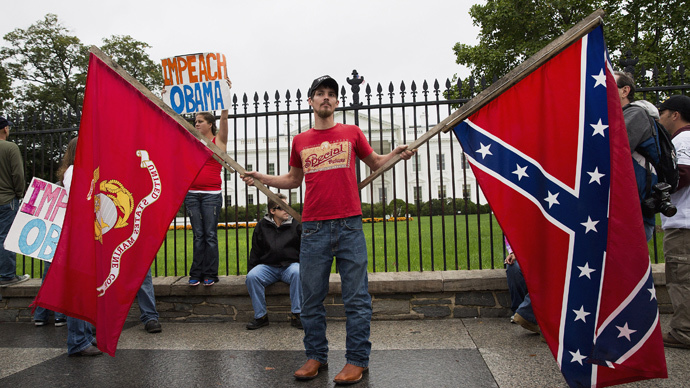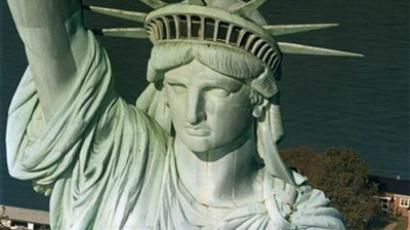Soon to become minority, US whites show less support for diversity – study

Psychologists at UCLA say they’ve conducted a study that suggests white Americans have differing views on diversity depending on whether or not their race remains the majority in the United States.
Doctoral student Felix Danbold and his University of California, Los Angeles professor Yuen Huo asked questions of roughly 100 white participants from across the US about multiculturalism and diversity, and received differing answers depending upon what they were told about the nation’s future racial makeup.
According to a press release issued by UCLA this week, the team took a pool of 98 white Americans — half male, half female, with an average age of 37 — and split them into two groups where they were told different information.
“One group was told that whites will no longer be the majority in the US by 2050,” Stuart Wolpert wrote for Phys.org. “The second group was told that whites would retain their majority status in the US through at least 2050. All participants were then asked a series of questions about their views on diversity.”
The US Census Bureau has predicted previously that whites will lose their minority status by as soon as 2043, and RT reported previously that the agency’s data from 2011 indicated that minorities — Hispanics, blacks, Asians and those of mixed race — made up 50.4 percent of US births that year, up from 37 percent 21 years earlier.
If the results of the UCLA researchers prove to be accurate, than Americans may be less accepting of the ‘melting pot’ mentality which drove immigrants to the US starting in the nineteenth century.
"Whites feel lukewarm about diversity when they are told that they are about to lose their majority status in the United States for the first time," Huo said of the study.
"We see a significant reduction in the endorsement of diversity when white Americans are exposed to current projections of future demographics," added Danbold. "Most Americans view diversity in positive terms, but many white Americans who see the actual demographic projections, and the loss of their majority status, end up being less enthusiastic about it."
According to the Wolpert, the UCLA team came to their findings by taking the two groups of white Americans that were told different ideas about the nation’s future racial makeup and asking participants in each subset to say how they felt on a scale of 1-to-7 (“strongly disagree” to “strongly agree”) about different statements, such as "One of the goals of our country should be to teach people from different racial, ethnic and cultural backgrounds how to live and work together" and "Americans should understand that differences in backgrounds and experiences can lead to different values and ways of thinking."
“Those who believed whites would continue to be the majority gave an average response of 5.67, while those who believed that whites would no longer be the majority gave an average response of just 5.15,” Wolpert wrote of the results.
In the paper’s abstract, Danbold writes that the results suggest the declining share of the US popular with regards to whites “threatens their status as the most proptypical ethnic group.”
“This prototypicality threat should lead to growing resistance toward diversity, motivated by the desire to reassert Whites’ standing as prototypical Americans,” he wrote, suggesting whites are “threatened prototypicality as a novel, emerging source of resistance toward diversity in twenty-first-century America.”
"Whites have long benefited from being seen as the ethnic
group that best represents what it means to be American,"
added Huo. “Thinking about a future in which whites are no
longer a numerical majority threatens this claim to the American
identity and, we have found, results in a reluctance to embrace
diversity and greater support for newcomers to assimilate to
American society."
Last year, a study conducted by the Associated Press in
conjunction with the NORC Center for Public Affairs Research
determined that minorities have higher levels of optimism than white Americans when
it comes down to their economic future,.
"In the minority community, as perceptions of discrimination lessen a bit with the election of an African-American president, people see a greater ability to succeed," Mark Mellman, a veteran Democratic consultant, told the AP then. "Many working-class whites, on the other hand, see dwindling opportunities as manufacturing and other jobs that once enabled them to get ahead just aren't available."














